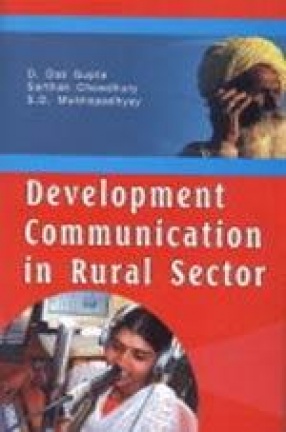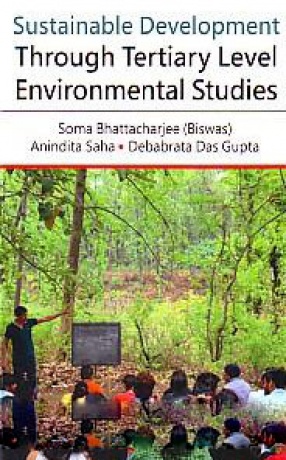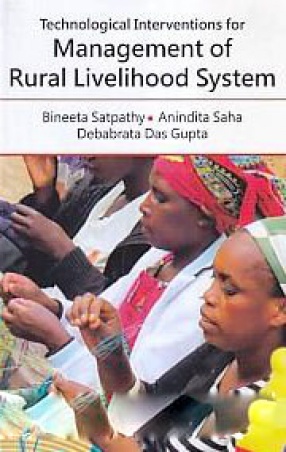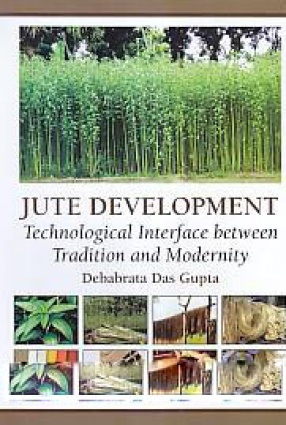Critical importance of the Development Communication (CD) in this particular context is obvious. CD is primarily communication for planned change. It is to reach unapproachable/unreachable mass of human through various means of communications for their development. It means more than just communicating information to the people. However, CD as a concept is yet to be fully internalised both by practitioners and researchers. This has yet to come out of the old paradigm in our country. The crucial task before us is to make the development efforts appropriate and thereby more effective, so that it will reach down to the heartland and world poverty. In this background CD has the immense potentiality. The CD is all about to inform, motivate and influence all sectors and levels of people. It is actually a process, not a technique, which is problem communication for promoting human development through education and by helping to reduce poverty, unemployment and social inequality. It obviously attaches an element of social commitment to the process of communication because of which development of population belong to all the cultural groups in the society is attained. Survey on literatures suggests that three categories of approaches have dominated the paradigm of communication and development since 1950s which are as: (a) the approach of viewing communication and development as a cause effect relationship; (b) the approach dealing primarily with what might be called cost-benefit analysis; and (c) the approach dealing primarily with infrastructure analysis. The CD which got headway only since late eighties can be seen as a social process designed to seek common understanding or consensus among all the participants of a development initiative. It is actually a challenge in communicating effectively for development. Method and media of communication should be used meaningfully and wisely to help meaning formation and in speeding up the process. It is also essential that the source of information be not only comprehensive but also credible. This point may seem very obvious, but it has often been overlooked. It may even more important than being equipped with sophisticated media. Moreover, the very direction of CD in India might have changed by the privatization of communication, rapid changes in communication technologies and increasing influence of the concept of social marketing. Hence, serious introspection and retrospection on this important and emerging domain as a whole is essentially needed. Socio-culturally constructed and value-laden scientific methods in research on the CD have to be pursued intensively and objectively.
Development Communication in Rural Sector
$51.30
$57.00
In stock
Free & Quick Delivery Worldwide
All orders amounting to US$ 50 or more qualify for Free Delivery Worldwide. For orders less than US$ 50, we offer Standard Delivery at $14 per book.
ABOUT THE AUTHOR Debabrata Das Gupta
Professor Debabrata Das Gupta (b. 1943), presently reemployed Professor of Agricultural Extension was awarded the Ph.D. degree from University of Kalyani in 1969. He was Vice-Chancellor, Bidhan Chandra Krishi Viswavidyalaya from 2001-04. Professor Das Gupta headed the Department of Agricultural Extension, Agricultural Economics and Agricultural Statistics of Visva-Bharati for about six years and also served as Dean, Faculty of Agriculture, Visva-Bharati for two years (1994-96). Professor Das Gupta also coordinated the agricultural extension programmes of Visva-Bharati from 1980 to 2001. He has completed a number of major research and extension projects sponsored by ICAR, DST and Govt. of West Bengal. He has supervised the work of 19 Ph.D. scholars of different social science disciplines. He has to his credit 9 books including 6 edited volumes and over 160 research and professional papers. He has contributed about two dozen chapters in books. He has organized a number of national seminars/workshops/conferences and chaired several scientific sessions including 07 in foreign countries. His fields of specialization are Technology Transfer, Rural Development, Agricultural Communication and Indigenous Knowledge System. Professor Das Gupta served as the member of the Governing Body, ICAR (2002-04). Presently he is actively associated with a number Institutes/Organisations as chairman/member. To name a few are Chairman of Research Advisory Committee of Central Sericulture Board, Eastern & North Eastern Regions, Vice-Chairman of HRD Unit of KVIC (Gol) and member of the Governing Body of Indo-Global Social Service Society, New Delhi. Professor Das Gupta is Fellow of the Academy of Science and Technology (WB) and Fellow of the National Academy of Social Science.
reviews
0 in total
Review by Anonymous
Development Communication in Rural Sector
Be the first to review “Development Communication in Rural Sector” Cancel reply
You must be logged in to post a review.
Bibliographic information
Title
Development Communication in Rural Sector
Author
Edition
1st ed.
Publisher
Abhijeet Publications, 2007
ISBN
8189886226
Length
x+286p., Tables.
Subjects
more by Debabrata Das Gupta see more
more by Sarthak Chowdhury see more
Job Satisfaction and Motivation
$63.00
$70.00
similar bookssee more
Principles in the Quantitative Analysis of Waters, Fertilizers, Plants and Soils
This book is primarily ...
$27.55
$29.00









There are no reviews yet.